
Naxos: The Enchanting Gem of the Cyclades
Naxos, the largest island in the Cyclades, is a paradise for those who seek a blend of history, culture, and natural beauty. With its pristine beaches, charming villages, and ancient ruins, Naxos offers a unique and unforgettable experience. Start your journey in the main town of Chora, where whitewashed houses and narrow alleys create a picturesque scene. Visit the iconic Portara, the marble gateway to the ancient Temple of Apollo, which stands majestically by the sea. The Archaeological Museum of Naxos is also a must-see, showcasing artifacts from the island's rich past. Venture into the heart of the island to explore traditional villages like Apiranthos and Halki. Here, you can stroll through cobblestone streets, visit local tavernas, and taste delicious Naxian cheese and olive oil. The lush landscapes and terraced hillsides make for great hiking opportunities, offering stunning views of the Aegean Sea. Naxos is also famous for its beautiful beaches. Agios Prokopios, Agia Anna, and Plaka are among the most popular, featuring golden sands and crystal-clear waters. For a more secluded experience, head to the lesser-known beaches like Mikri Vigla and Aliko. Whether you're interested in history, culture, or simply relaxing by the sea, Naxos has something to offer every traveler. Its warm hospitality and diverse attractions make it a perfect destination for a memorable holiday.
Local tips in Naxos
- Rent a car or scooter to explore the island's hidden gems and remote villages.
- Visit the local markets in Chora to buy fresh produce and handmade crafts.
- Try the local specialty, Kitron, a liqueur made from citron fruit.
- Take a day trip to the nearby island of Delos, the mythological birthplace of Apollo and Artemis.
- Pack comfortable walking shoes for exploring the island's many hiking trails.
Naxos: The Enchanting Gem of the Cyclades
Naxos, the largest island in the Cyclades, is a paradise for those who seek a blend of history, culture, and natural beauty. With its pristine beaches, charming villages, and ancient ruins, Naxos offers a unique and unforgettable experience. Start your journey in the main town of Chora, where whitewashed houses and narrow alleys create a picturesque scene. Visit the iconic Portara, the marble gateway to the ancient Temple of Apollo, which stands majestically by the sea. The Archaeological Museum of Naxos is also a must-see, showcasing artifacts from the island's rich past. Venture into the heart of the island to explore traditional villages like Apiranthos and Halki. Here, you can stroll through cobblestone streets, visit local tavernas, and taste delicious Naxian cheese and olive oil. The lush landscapes and terraced hillsides make for great hiking opportunities, offering stunning views of the Aegean Sea. Naxos is also famous for its beautiful beaches. Agios Prokopios, Agia Anna, and Plaka are among the most popular, featuring golden sands and crystal-clear waters. For a more secluded experience, head to the lesser-known beaches like Mikri Vigla and Aliko. Whether you're interested in history, culture, or simply relaxing by the sea, Naxos has something to offer every traveler. Its warm hospitality and diverse attractions make it a perfect destination for a memorable holiday.
When is the best time to go to Naxos?
Iconic landmarks you can’t miss
Temple of Apollo
Iconic marble gate of an unfinished temple, offering stunning sunset views and a glimpse into Naxos's ancient past.
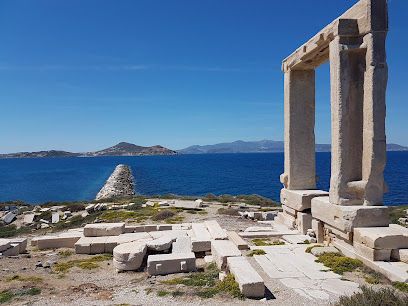
Archaeological Site of Yria Naxos
Discover the ancient sanctuary of Yria on Naxos: a journey through Greek history, mythology, and architectural marvels. Explore temples and votive offerings.

Kalamitsia
Explore the historic Kalamitsia Monastery in Naxos, a 17th-century Jesuit retreat offering stunning views and a glimpse into the island's past.
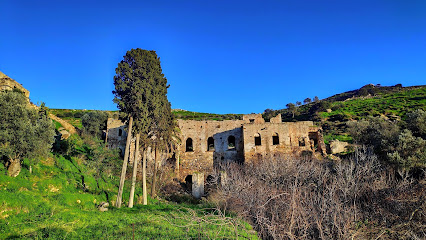
Temple of Dionysus, Yria
Explore the ruins of the Temple of Dionysus in Yria, Naxos, and discover the ancient religious and cultural heritage of the island.
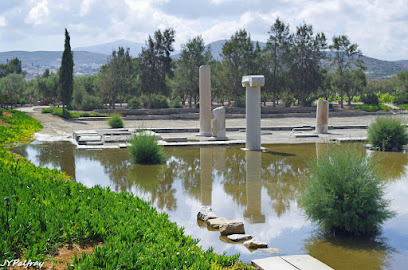
Sanctuary of the Source-Flerio
Explore the Sanctuary of the Source-Flerio in Naxos: an ancient site dedicated to fertility and the protectors of marble quarries.
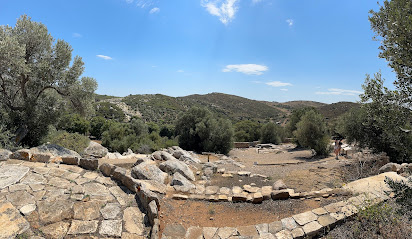
Statue of Afrodite
Discover the modern Statue of Afrodite on Naxos, a tribute to the goddess of love and beauty, offering stunning Aegean views.

Statue of Ariadne
A marble statue on Naxos that embodies Greek mythology, the Statue of Ariadne is a reminder of love, betrayal, and the island's rich history.

Sacred Band monument, October 1944
Honor the heroes of the Sacred Band at this historical Naxos monument, a place of reflection surrounded by the island's natural beauty.

Heroes Monument
A solemn tribute to Naxos' heroes, the Heroes Monument stands as a powerful symbol of bravery and remembrance in the heart of Naxos Town.

Πλατεία Μακεδονομάχου Πραντούνα Κάστρο Νάξος
Discover Prantouna Square in Naxos Castle: A historical haven where Venetian echoes meet Cycladic charm, offering a unique glimpse into island's past.

Unmissable attractions to see
Mikri Vigla Beach
Discover the natural beauty and vibrant atmosphere of Mikri Vigla Beach in Naxos, a paradise for relaxation, water sports, and local culture.
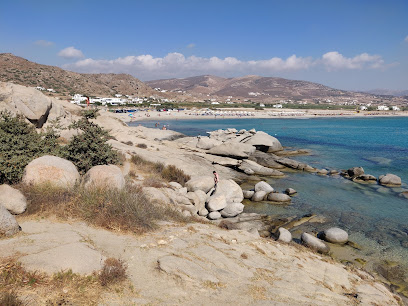
Hawaii Beach
Discover Hawaii Beach on Naxos, where golden sands meet crystal waters in a stunning Greek paradise perfect for relaxation and adventure.
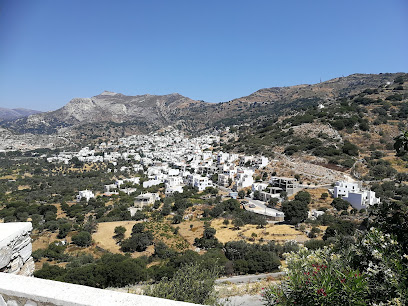
Paralia Milopotas
Experience the breathtaking views and vibrant atmosphere at Paralia Milopotas, one of Greece's most beautiful beaches, perfect for relaxation and fun.
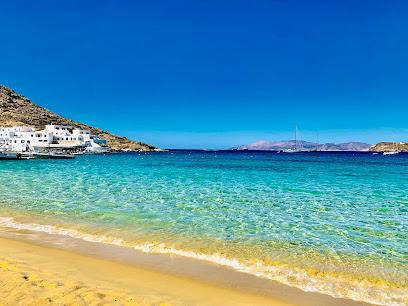
Nosotros Mykonos
Experience the vibrant flavors and lively ambiance at Nosotros Mykonos, a must-visit restaurant and lounge in the heart of Agios Stefanos.

Magganari Beach
Experience the breathtaking beauty and tranquility of Magganari Beach, a hidden gem in Greece perfect for relaxation and adventure.
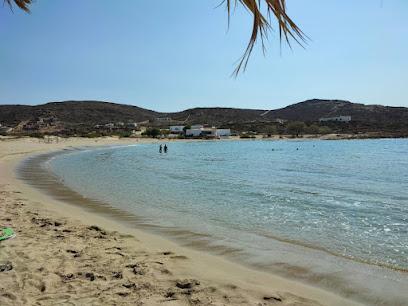
Lageri Beach
Explore Lageri Beach in Paros, a tranquil haven with crystal-clear waters and stunning views, perfect for relaxation and beach activities.
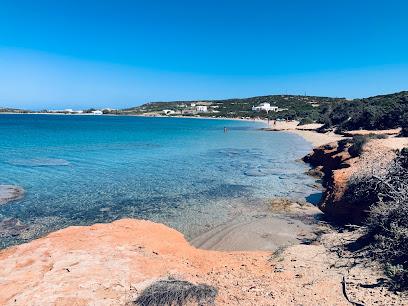
Bazeos Tower
Discover the rich cultural heritage and stunning landscapes at Bazeos Tower, a unique historical site on the beautiful island of Naxos.
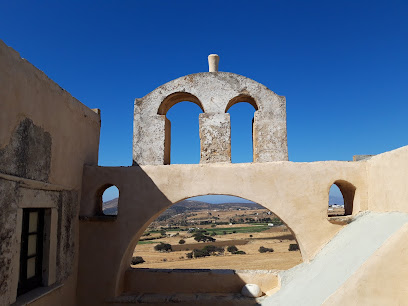
Hotel Ruins Alyko (Graffiti)
Explore the captivating ruins of Hotel Alyko in Naxos, where vibrant graffiti meets stunning coastal views in a unique artistic experience.
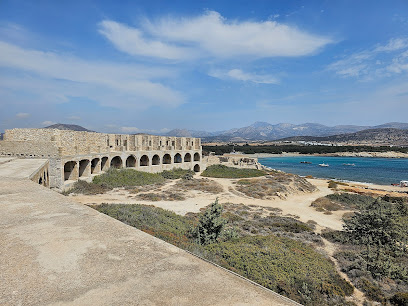
Agios Sostis beach
Discover Agios Sostis Beach in Tinos, a serene paradise of soft sands and azure waters, perfect for relaxation and authentic local experiences.
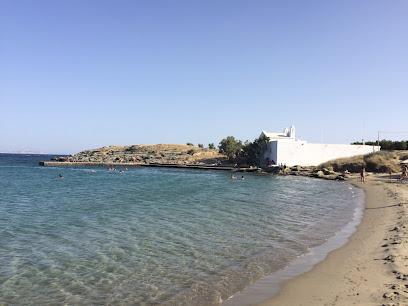
Ancient Marble Quarries
Explore the Ancient Marble Quarries of Paros, a captivating archaeological site showcasing timeless craftsmanship and stunning Aegean landscapes.
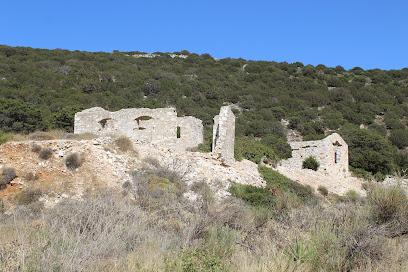
Tower of Ayia
Explore the Tower of Ayia, a historical landmark in Naxos, where ancient architecture meets breathtaking views of the Aegean Sea.
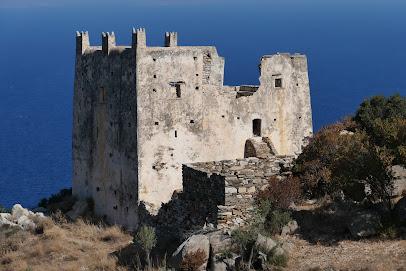
Archaeological Site of Yria Naxos
Explore the rich history and stunning artifacts at the Archaeological Site of Yria, a captivating historical landmark in beautiful Naxos.
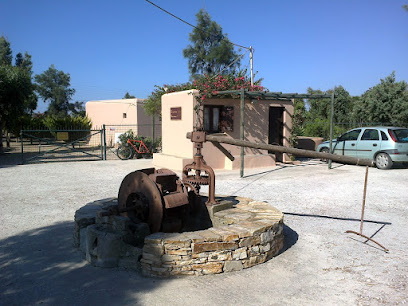
Church of Saint George Diasoritis (11th c.)
Discover the historical charm of the Church of Saint George Diasoritis, an 11th-century Greek Orthodox gem in Chalcis, Greece.
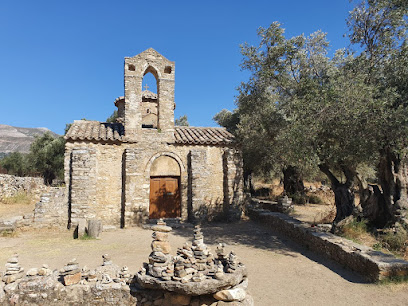
Monastery of Fotodoti
Discover tranquility at the Monastery of Fotodoti in Drimalia, a spiritual haven rich in history and natural beauty, perfect for serene exploration.
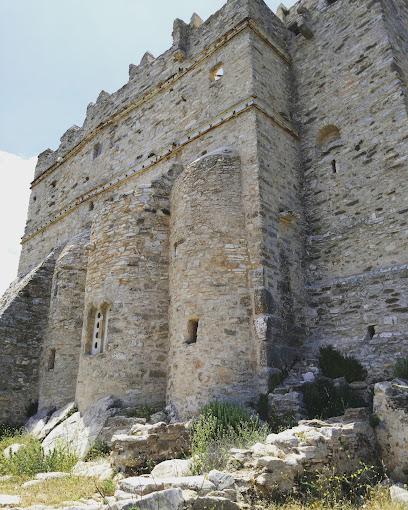
Tower of Ayia
Discover the breathtaking Tower of Ayia in Naxos, a historical landmark offering stunning views and a glimpse into ancient Greek history.
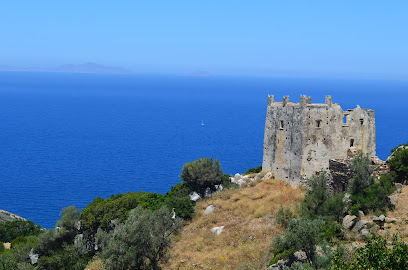
Essential places to dine
To Elliniko Restaurant
Experience authentic Greek flavors at To Elliniko Restaurant in Naxos - where tradition meets taste in a family-friendly setting.
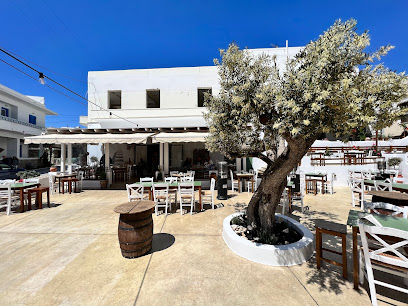
Giannoulis
Experience the rich flavors of Greece at Giannoulis on Naxos Island—where tradition meets exquisite dining.
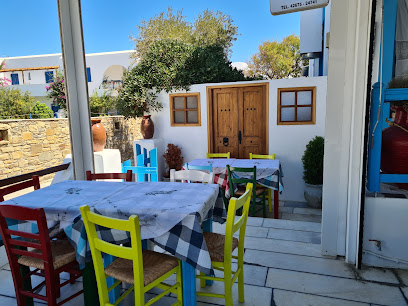
Meze *2
Experience authentic Greek cuisine at Meze *2 in Naxos—where every dish tells a story.
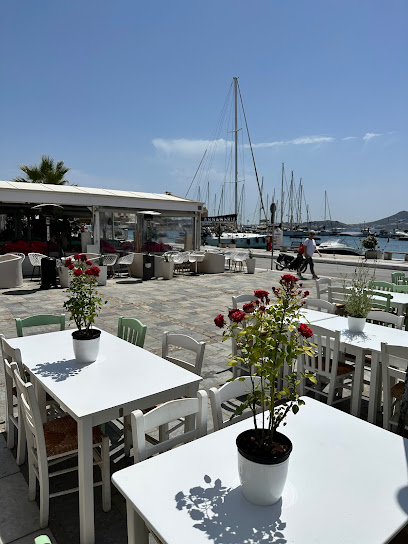
Taverna Axiotissa
Discover authentic Greek cuisine at Taverna Axiotissa in Naxos – where tradition meets modern culinary artistry.
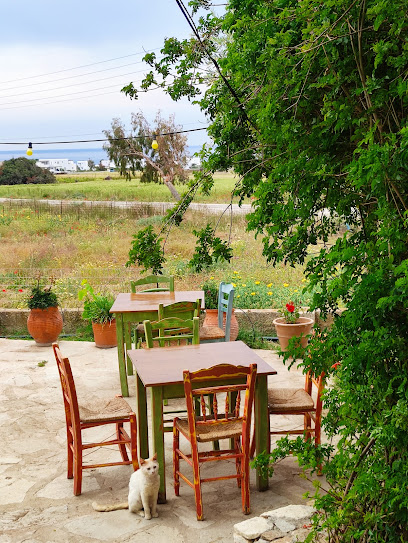
Scirocco Restaurant
Experience authentic Greek flavors at Scirocco Restaurant in Naxos – where every meal is a celebration of Mediterranean cuisine.
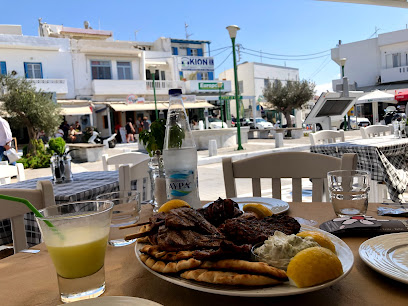
Su e Giu
Experience authentic Italian cuisine in Naxos at Su e Giu – where every bite transports you to Italy!
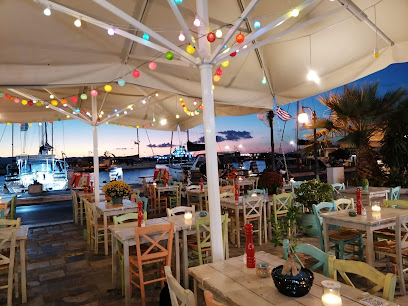
Doukato Restaurant
Experience authentic Greek flavors at Doukato Restaurant in Naxos - where every dish tells a story of tradition and quality.
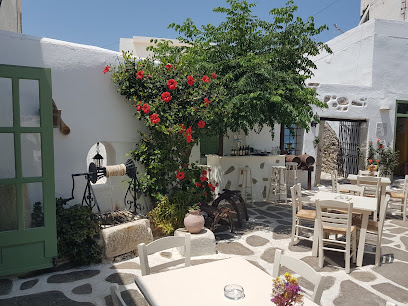
Melimilon Naxos
Experience authentic Greek breakfast delights at Melimilon Naxos, where flavor meets tradition in a cozy bistro setting.
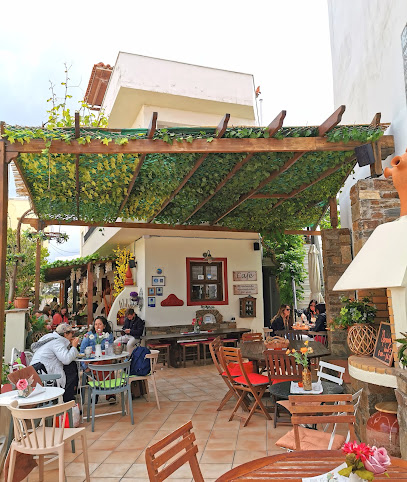
Santana Beach Club & Restaurant
Experience breathtaking views and exquisite flavors at Santana Beach Club & Restaurant in Agios Anna, Naxos - your ultimate coastal getaway.
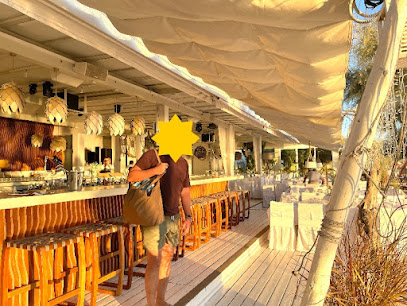
Irini's Restaurant
Experience authentic Greek flavors at Irini's Restaurant in Hora, Naxos - where tradition meets taste.
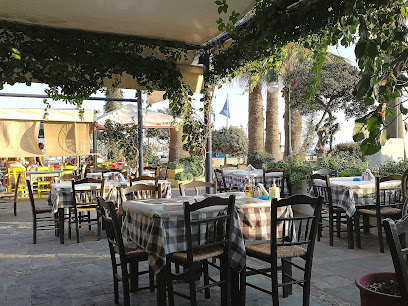
Giorgis
Discover Giorgis in Melanes: A culinary treasure offering authentic Greek cuisine in a picturesque setting.
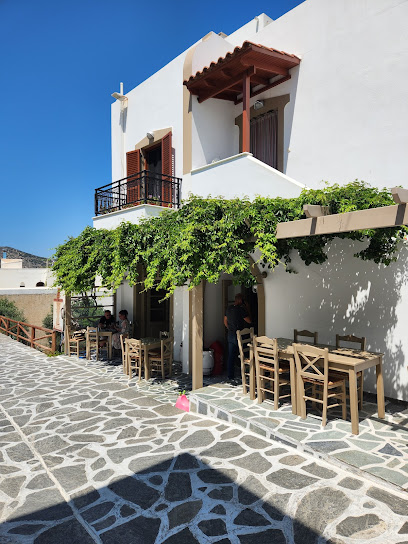
Yazoo Summer Bliss
Discover Yazoo Summer Bliss: Where Authentic Greek Cuisine Meets Stunning Beachfront Views in Naxos.
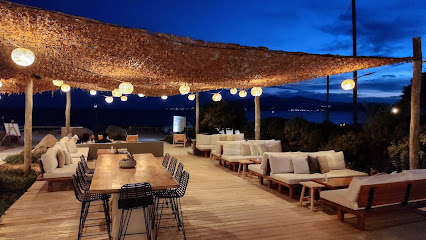
Faros tou Alykou
Discover authentic Greek cuisine at Faros tou Alykou in Kastraki—where every dish tells a story.
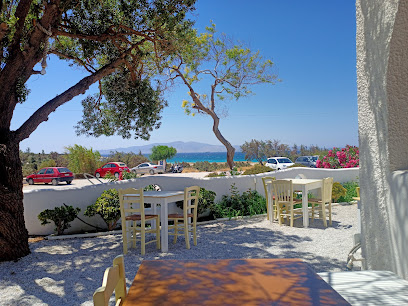
OASIS RESTAURANT
Experience authentic Greek cuisine at Oasis Restaurant in Chora Naxos – where every dish tells a story of tradition and flavor.
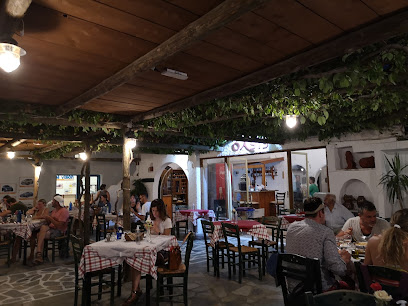
Dal Professore Naxos Mediterranean Restaurant
Experience exquisite Italian and seafood cuisine at Dal Professore Naxos Mediterranean Restaurant with breathtaking sea views.
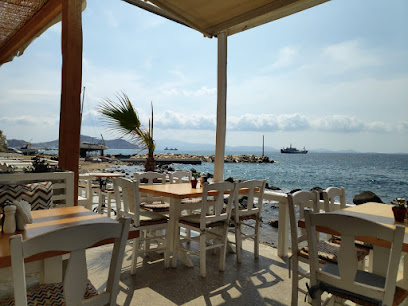
Markets, malls and hidden boutiques
K. Tziblakis - Local Products
Explore K. Tziblakis in Naxos for an authentic shopping experience filled with local dairy, pottery, and unique gifts.
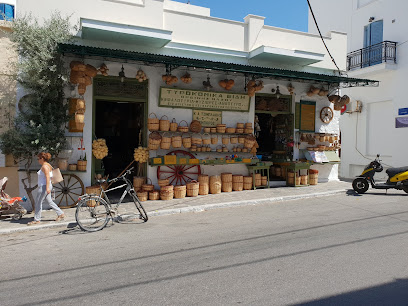
Pagonis Greek-sandals
Discover the art of handcrafted leather sandals at Pagonis Greek Sandals in Naxos – where tradition meets style in the heart of Greece.
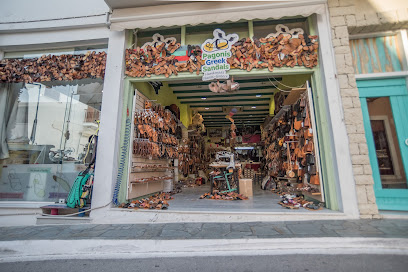
King of Candy Naxos
Explore the enchanting world of sweets at King of Candy Naxos, where every treat is a delightful journey through flavor and nostalgia.
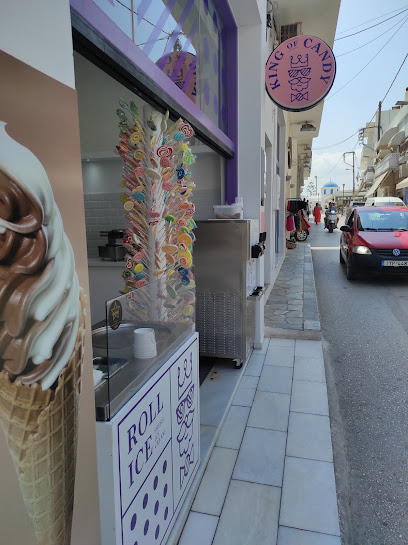
Tereza’s Greek Concept Store
Shop at Tereza's Greek Concept Store in Naxos for unique gifts, fashion, and accessories that celebrate Greek culture and style.
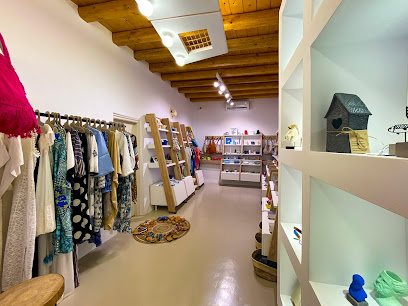
Papyrus
Explore the enchanting world of second-hand books and unique treasures at Papyrus, Naxos' beloved used book store.
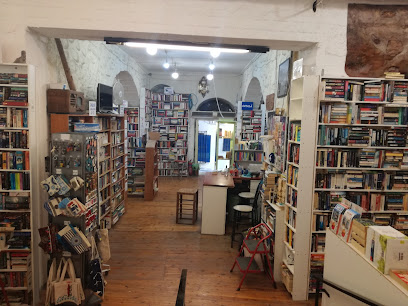
Miniatoúra
Explore Miniatoúra in Naxos for unique gifts, handcrafted pottery, exquisite jewelry, and local treasures that embody Greek artistry.
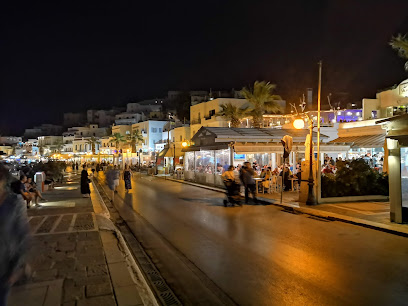
Naxia Gi
Explore Naxia Gi in Chalkio for authentic local crafts, artisanal delights, and a glimpse into Naxos' rich cultural heritage.
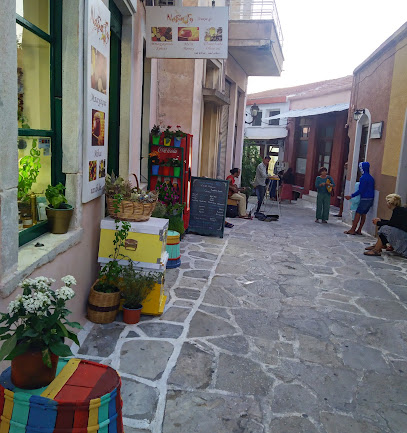
Fish & Olive, art of the Aegean
Explore the beauty of Aegean craftsmanship at Fish & Olive, where every handcrafted piece tells a story.
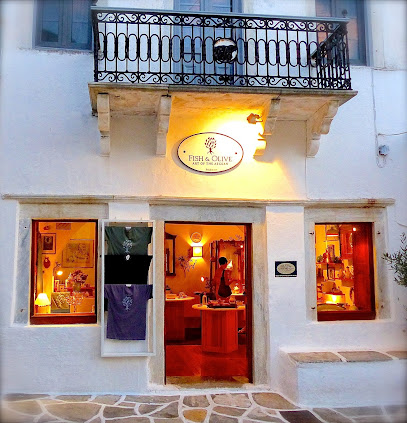
Boutique de la Parfumerie
Explore the enchanting scents of Naxos at Boutique de la Parfumerie, where unique fragrances tell the story of the island's beauty.
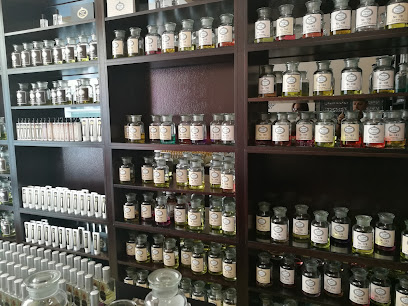
NAXOS MARKET
Discover the essence of Naxos at Naxos Market, a vibrant shopping destination filled with local treasures and culinary delights.
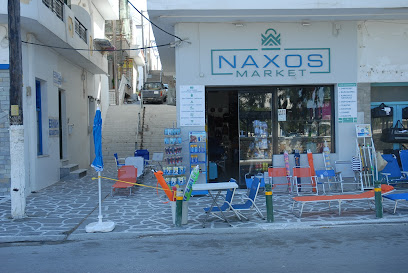
Giampouras Collections
Discover exquisite handcrafted jewelry at Giampouras Collections in Naxos, where tradition meets artistry in every unique piece.
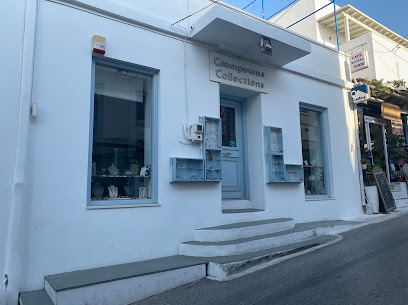
APODO Hellenic Design Gift Store
Explore the charm of APODO Hellenic Design Gift Store in Kastro, Naxos - your destination for unique Greek souvenirs and handmade treasures.
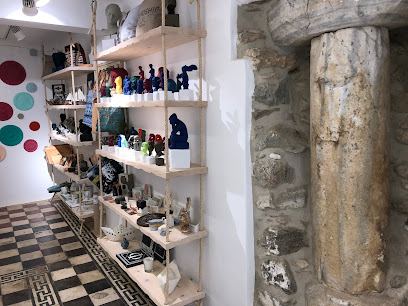
MELISSINOS JEWELLERY
Explore Melissinos Jewellery in Naxos for exquisite handcrafted pieces that reflect the island's beauty and rich cultural heritage.

Ιδέα Shop - Souvenirs T-shirts Clothes Gifts Naxos
Discover authentic Naxos souvenirs, unique clothing, and memorable gifts at Ιδέα Shop, your go-to destination for treasures from the island.
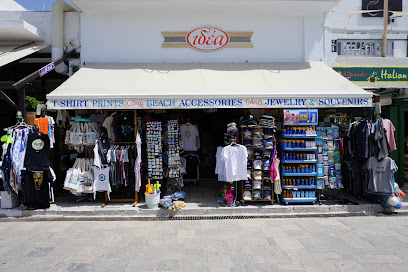
Kares
Explore Kares in Naxos for a unique selection of Greek fashion, blending traditional craftsmanship with modern styles in a charming boutique setting.
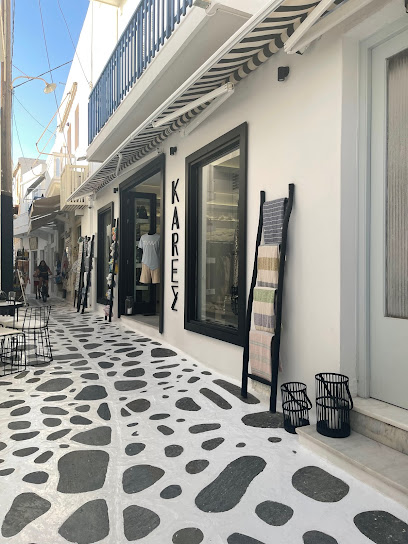
Essential bars & hidden hideouts
Swing Bar
Swing Bar in Naxos: Sip on unique cocktails and dance the night away in a vibrant atmosphere that captures the essence of Greek nightlife.
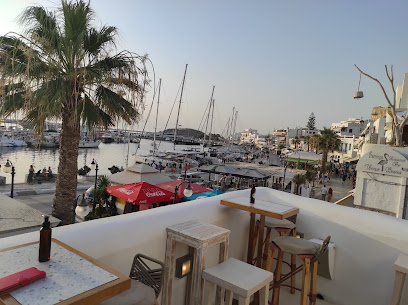
520 Cocktail Bar Restaurant
Immerse yourself in the lively atmosphere of 520 Cocktail Bar Restaurant, where expertly crafted cocktails meet delicious Mediterranean cuisine in Naxos.
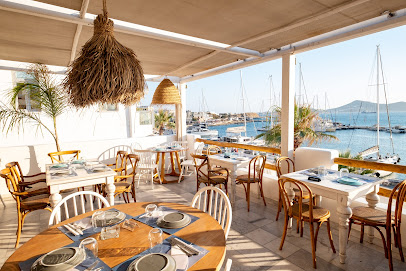
Kitron
Discover the vibrant atmosphere of Kitron, a cocktail bar and brunch restaurant in Naxos, serving unique drinks and delicious meals in a cozy setting.
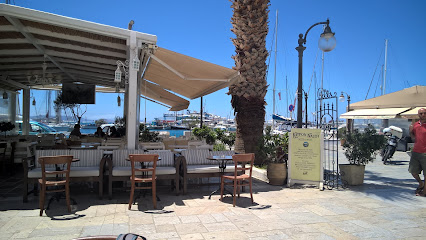
Like Home Bar
Discover Like Home Bar in Naxos: a lively cocktail bar offering exquisite drinks, sushi, and an unforgettable nightlife experience in the heart of Old Town.
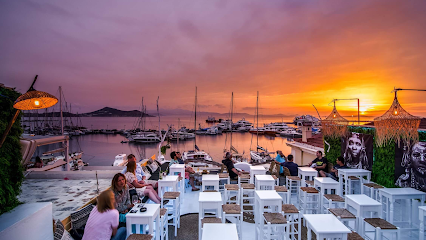
Honey & Cinnamon Bar
Discover the perfect blend of cocktails and traditional Greek cuisine at Honey & Cinnamon Bar in the heart of Naxos.
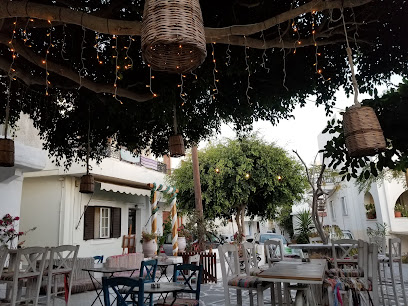
The Rum Bar cocktails & spirits
Experience the vibrant nightlife of Naxos at The Rum Bar, where unique rums and cocktails create unforgettable memories.
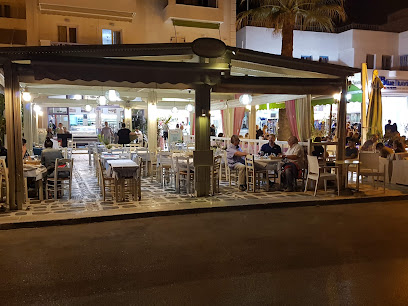
Toro Rooftop Cocktail Bar Naxos
Unwind at Toro Rooftop Cocktail Bar in Naxos, where breathtaking views and exquisite cocktails create the ideal night out in paradise.
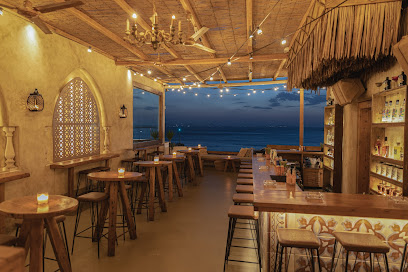
BYAMMO
Experience the vibrant cocktail culture of Naxos at BYAMMO, where refreshing drinks and stunning seaside views create unforgettable memories.
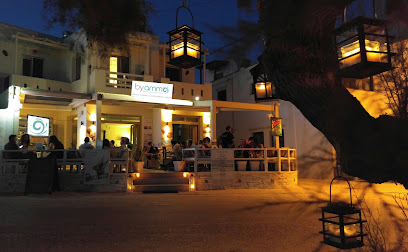
BACO
Discover the vibrant atmosphere of BACO, Naxos' premier cocktail bar and brunch spot, offering stunning sea views and exquisite flavors.
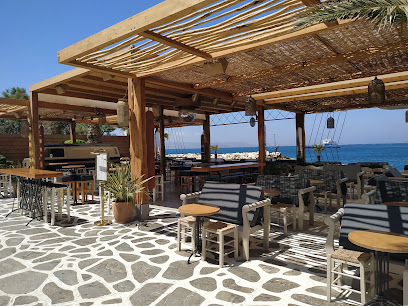
Pool Bar Aegean
Discover the lively atmosphere of Pool Bar Aegean in Naxos, where refreshing cocktails meet stunning poolside views for an unforgettable experience.
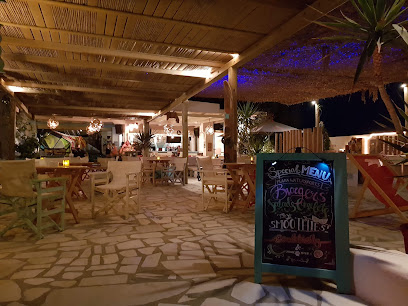
CAVA WINE - OINOCHOROS
Discover the finest wines at CAVA WINE - OINOCHOROS, a charming wine bar in Naxos, Greece, where exquisite tastes meet local charm.
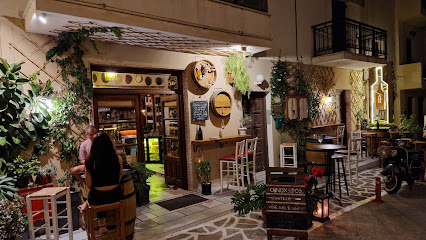
naxos cafe
Discover the vibrant atmosphere and exquisite cocktails at Naxos Café, a must-visit cocktail bar in the heart of Naxos, Greece.
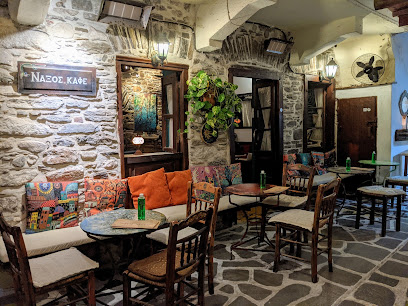
Prime Bar
Experience the vibrant nightlife of Naxos at Prime Bar, where expertly crafted cocktails meet a lively atmosphere under the stars.
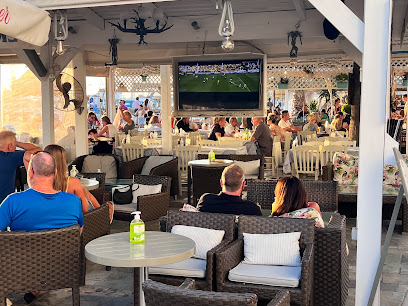
Belman
Discover the cozy charm of Belman in Naxos, where unique cocktails and a vibrant ambiance await you for an unforgettable night out.
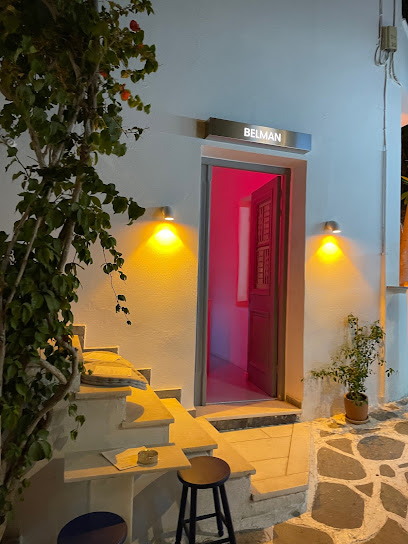
Local Phrases about Naxos
-
- HelloΓεια σας
[Ya sas] - GoodbyeΑντίο
[Adio] - YesΝαι
[Ne] - NoΌχι
[Ohi] - Please/You're welcomeΠαρακαλώ
[Parakalo] - Thank youΕυχαριστώ
[Efharisto] - Excuse me/SorryΣυγνώμη
[Signomi] - How are you?Τι κάνεις;
[Ti kanis?] - Fine. And you?Καλά. Εσύ;
[Kala. Esi?] - Do you speak English?Μιλάς Αγγλικά;
[Milas Anglika?] - I don't understandΔεν καταλαβαίνω
[Den katalaveeno]
- HelloΓεια σας
-
- I'd like to see the menu, pleaseΘα ήθελα να δω το μενού, παρακαλώ
[Tha ithela na do to menou, parakalo] - I don't eat meatΔεν τρώω κρέας
[Den troo kreas] - Cheers!Υγεία!
[Iyia!] - I would like to pay, pleaseΘα ήθελα να πληρώσω, παρακαλώ
[Tha ithela na plirosos, parakalo]
- I'd like to see the menu, pleaseΘα ήθελα να δω το μενού, παρακαλώ
-
- Help!Βοήθεια!
[Voithia!] - Go away!Φύγε!
[Fige!] - Call the Police!Καλέστε την Αστυνομία!
[Kaleste tin Astinomia!] - Call a doctor!Καλέστε γιατρό!
[Kaleste giatro!] - I'm lostΈχω χαθεί
[Eho hathi] - I'm illΕίμαι άρρωστος
[Ime arrostos]
- Help!Βοήθεια!
-
- I'd like to buy...Θα ήθελα να αγοράσω...
[Tha ithela na agorasoo...] - I'm just lookingΑπλά κοιτάζω
[Apla kitazo] - How much is it?Πόσο κοστίζει;
[Poso kostizi?] - That's too expensiveΑυτό είναι πολύ ακριβό
[Afto ine poli akribo] - Can you lower the price?Μπορείτε να μειώσετε την τιμή;
[Borite na meiosete tin timi?]
- I'd like to buy...Θα ήθελα να αγοράσω...
-
- What time is it?Τι ώρα είναι;
[Ti ora ine?] - It's one o'clockΕίναι μία ώρα
[Ine mia ora] - Half past (10)Μισή (10)
[Mise (deka)] - MorningΠρωί
[Proi] - AfternoonΑπόγευμα
[Apoyevma] - EveningΒράδυ
[Vradi] - YesterdayΧθες
[Hthes] - TodayΣήμερα
[Simera] - TomorrowΑύριο
[Aurio] - 1Ένα
[Ena] - 2Δύο
[Dyo] - 3Τρία
[Tria] - 4Τέσσερα
[Tessera] - 5Πέντε
[Pente] - 6Έξι
[Exi] - 7Επτά
[Epta] - 8Οκτώ
[Okto] - 9Εννέα
[Ennea] - 10Δέκα
[Deka]
- What time is it?Τι ώρα είναι;
-
- Where's a/the...?Πού είναι ένα/το...;
[Pou ine ena/to...?] - What's the address?Ποια είναι η διεύθυνση;
[Pia ine i diefthinsi?] - Can you show me (on the map)?Μπορείτε να μου δείξετε (στο χάρτη);
[Borite na mou dixete (sto charti)?] - When's the next (bus)?Πότε είναι το επόμενο (λεωφορείο);
[Pote ine to epomeno (leoforeio)?] - A ticket (to ....)Ένα εισιτήριο (για το...);
[Ena isitirio (gia to...)?]
- Where's a/the...?Πού είναι ένα/το...;
History of Naxos
-
Naxos, the largest of the Cyclades islands, has an illustrious history that dates back to the Neolithic period. Archaeological evidence suggests that the island was inhabited as early as 4000 BCE. The ancient city of Naxos was a thriving center of Cycladic culture, marked by its distinctive marble sculptures and artifacts.
-
Greek mythology richly colors Naxos’s history. According to legend, Naxos is where Theseus abandoned Ariadne after she helped him escape the labyrinth of Crete. The god Dionysus found her there and made her his wife. This myth underscores the island's deep connection with the god of wine and festivity, Dionysus.
-
During the Classical period, Naxos was renowned for its economic prosperity and cultural achievements. The island’s fertile lands produced high-quality wine and marble, which were exported throughout the Aegean. Naxos also played a significant role in the Ionian Revolt against Persian rule in the 5th century BCE.
-
The Byzantine period saw Naxos become an important religious center, dotted with numerous churches and monasteries. In 1207, the Venetian Marco Sanudo captured the island, establishing the Duchy of the Archipelago. The Venetian influence is still visible today in the island’s architecture, especially in the Kastro (castle) district of Naxos Town.
-
Naxos fell under Ottoman rule in the 16th century, though the Venetians retained some influence. The islanders endured heavy taxation and occasional pirate raids. Despite these hardships, Naxos became a center of resistance against Ottoman rule, contributing to the Greek War of Independence in the 1820s.
-
Following Greece's independence, Naxos integrated into the modern Greek state. The island continued to thrive, benefiting from agriculture, especially its famous potatoes and citrus fruits. Today, Naxos is a vibrant tourist destination, celebrated for its rich history, stunning landscapes, and cultural heritage.
Naxos Essentials
-
Naxos is accessible by both sea and air. The island has a small airport, Naxos Island National Airport (JNX), which receives flights from Athens. Alternatively, you can take a ferry from Athens' Piraeus Port, with several companies offering daily services. The ferry ride takes approximately 4-6 hours, depending on the type of vessel.
-
Naxos has a variety of transportation options. You can rent a car, scooter, or bicycle to explore the island at your own pace. Public buses operated by KTEL Naxou connect the main town (Chora) with villages and beaches across the island. Taxis are also available but can be more expensive. Additionally, many hotels offer shuttle services to and from the airport or port.
-
The official currency in Naxos is the Euro (€). Credit and debit cards are widely accepted in hotels, restaurants, and larger shops. However, it's advisable to carry some cash, especially when visiting smaller villages and family-run establishments. ATMs are available in Chora and other major tourist areas.
-
Naxos is generally a safe destination for tourists. Nonetheless, it's important to exercise standard precautions. Avoid poorly lit areas at night, keep an eye on your belongings in crowded places, and be cautious when using ATMs. While Naxos doesn't have any specific high-crime areas targeting tourists, always remain vigilant.
-
In case of emergency, dial 112 for immediate assistance. This number connects you to police, medical, and fire services. The main hospital is located in Chora and there are several pharmacies throughout the island for minor health issues. It's recommended to have travel insurance that covers medical emergencies.
-
Fashion: Do dress modestly, especially when visiting religious sites. Swimwear should be confined to the beach. Religion: Do respect local customs and traditions. Always cover your shoulders and knees when entering churches. Public Transport: Do be courteous to fellow passengers. Offer your seat to the elderly. Don't eat or drink on public transport. Greetings: Do greet people with a friendly 'Kalimera' (Good morning) or 'Kalispera' (Good evening). A handshake is customary. Eating & Drinking: Do try local delicacies and accept food offerings graciously. Don't refuse hospitality, as it is considered impolite.
-
To experience Naxos like a local, visit the local markets in Chora where you can buy fresh produce and traditional Greek goods. Engage with locals, as they are often friendly and willing to share stories about the island’s history and culture. Don't miss visiting the Portara, an ancient marble gate, especially at sunset. For a unique experience, explore the lesser-known beaches and hike the trails around Mount Zas, the highest peak in the Cyclades.
Nearby Cities to Naxos
-
Things To Do in Santorini
-
Things To Do in Pyrgos
-
Things To Do in Samos
-
Things To Do in Kos
-
Things To Do in Athens
-
Things To Do in Bodrum
-
Things To Do in Kusadasi
-
Things To Do in Heraklion
-
Things To Do in Ephesus
-
Things To Do in Rethymno
-
Things To Do in Crete
-
Things To Do in Izmir
-
Things To Do in Chania
-
Things To Do in Nafplio
-
Things To Do in Marmaris













